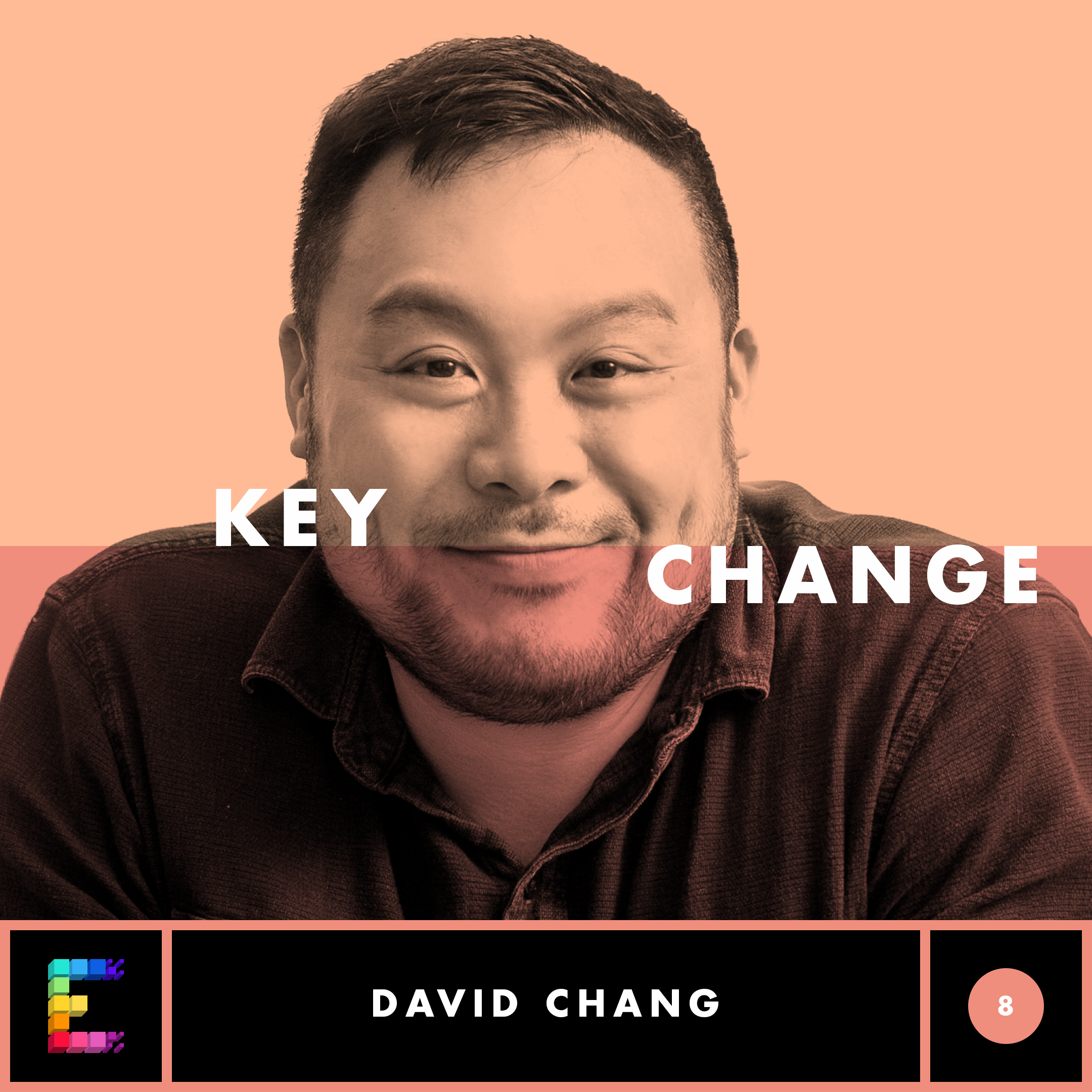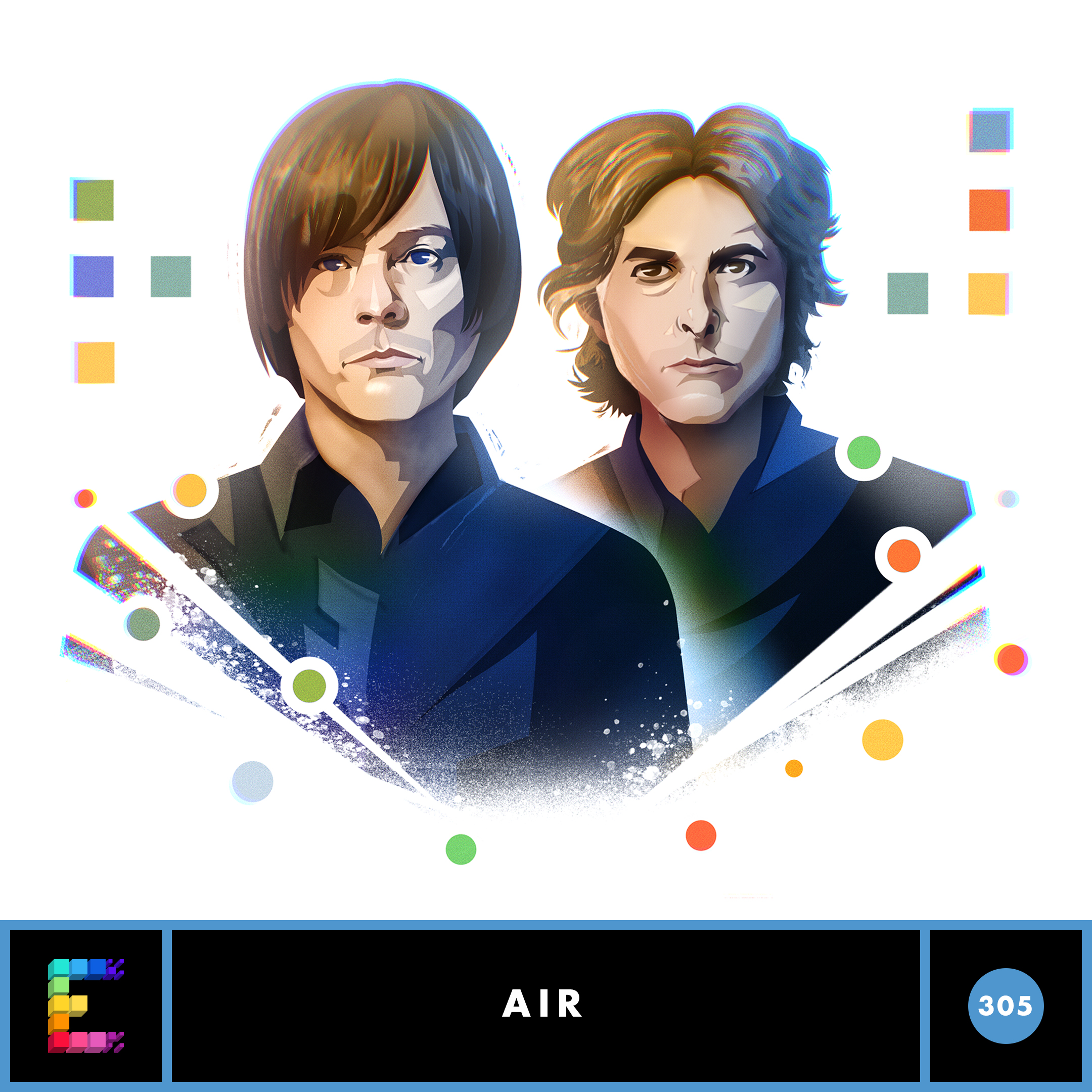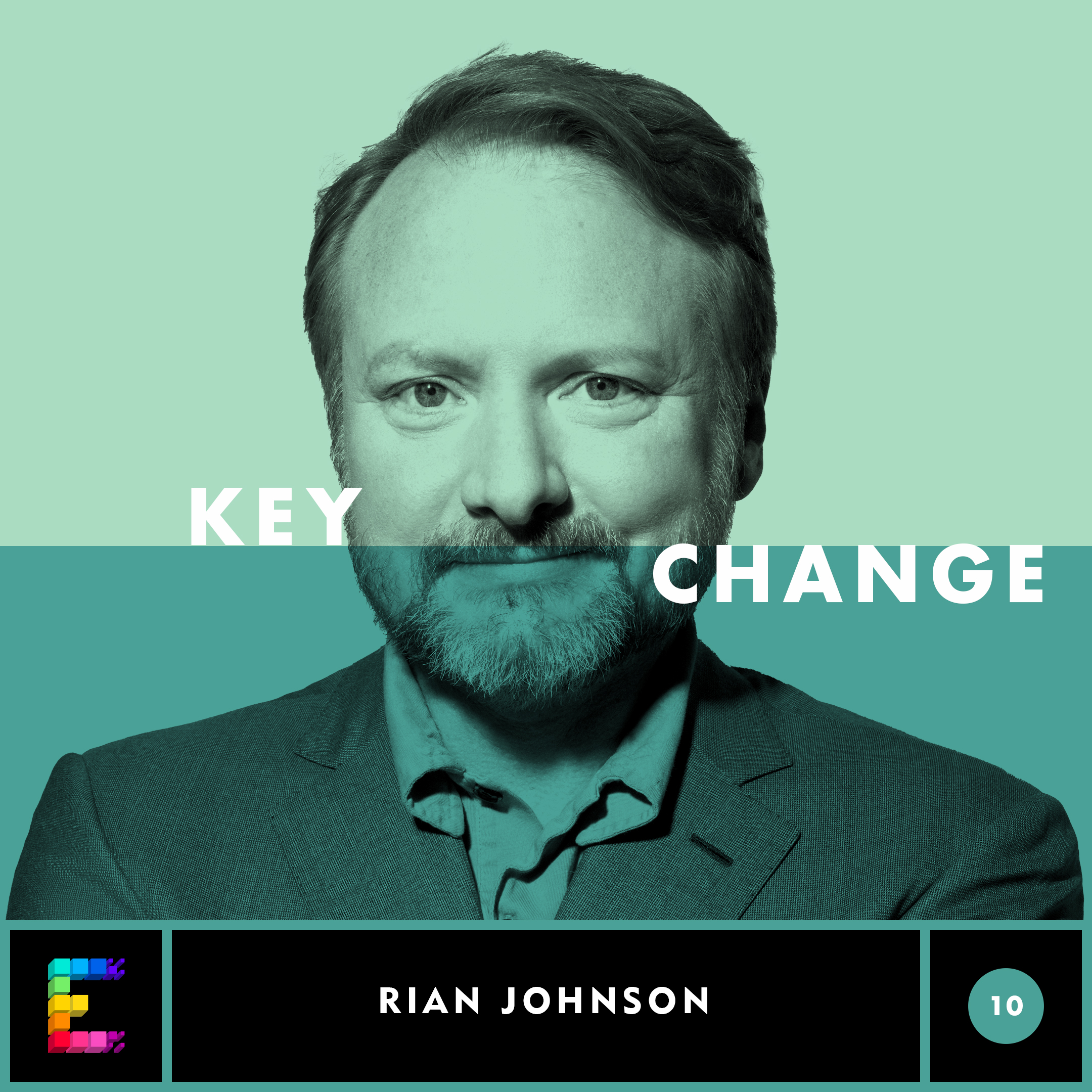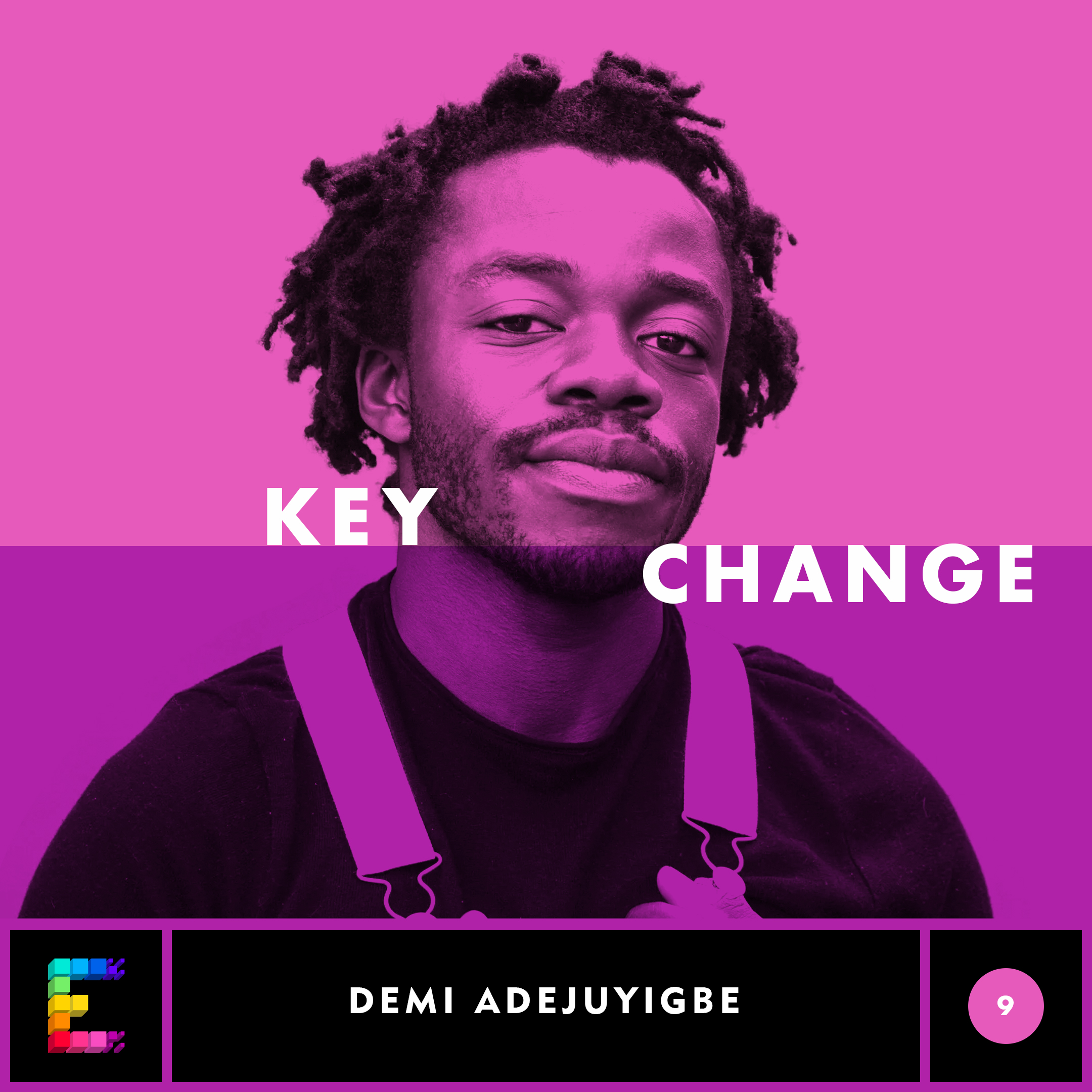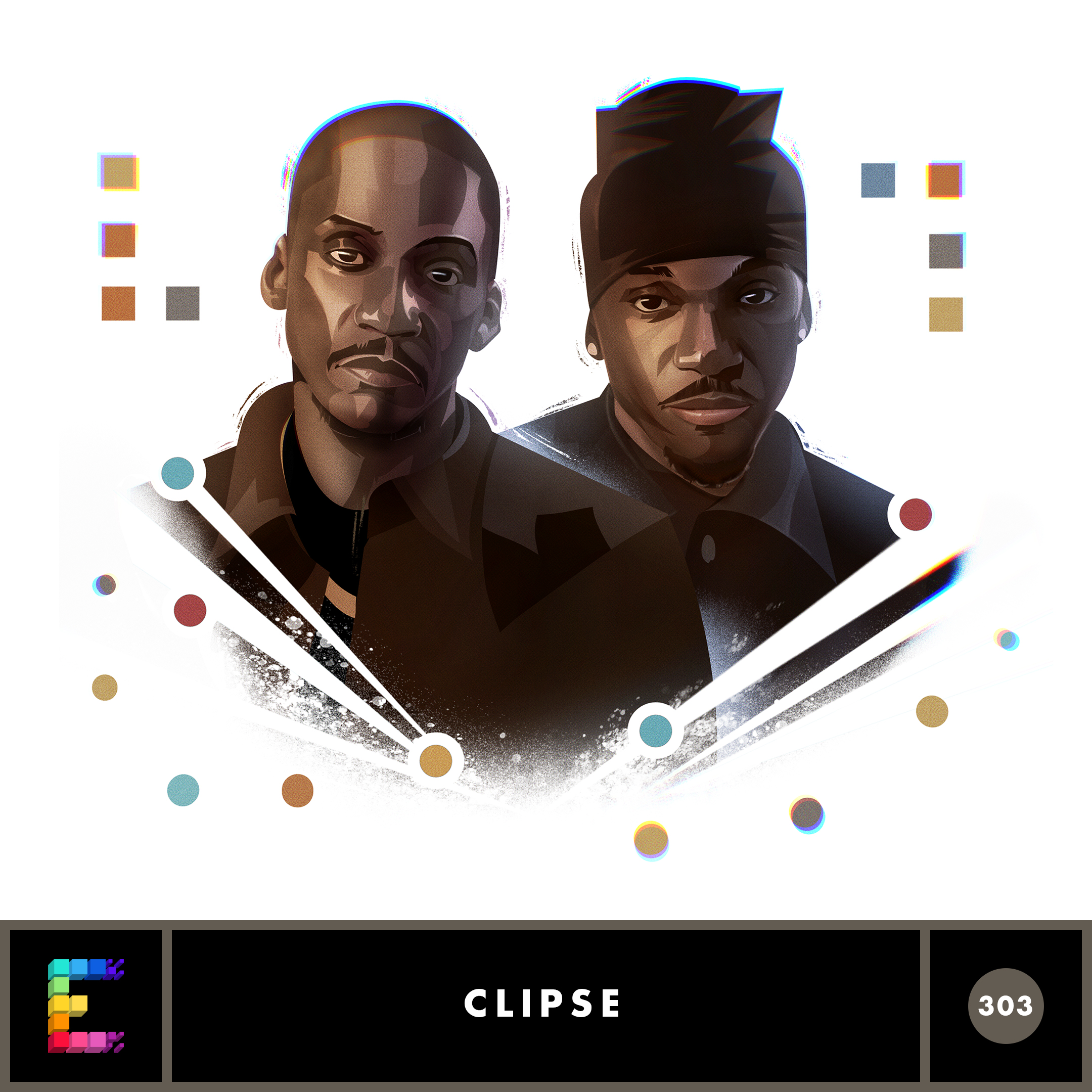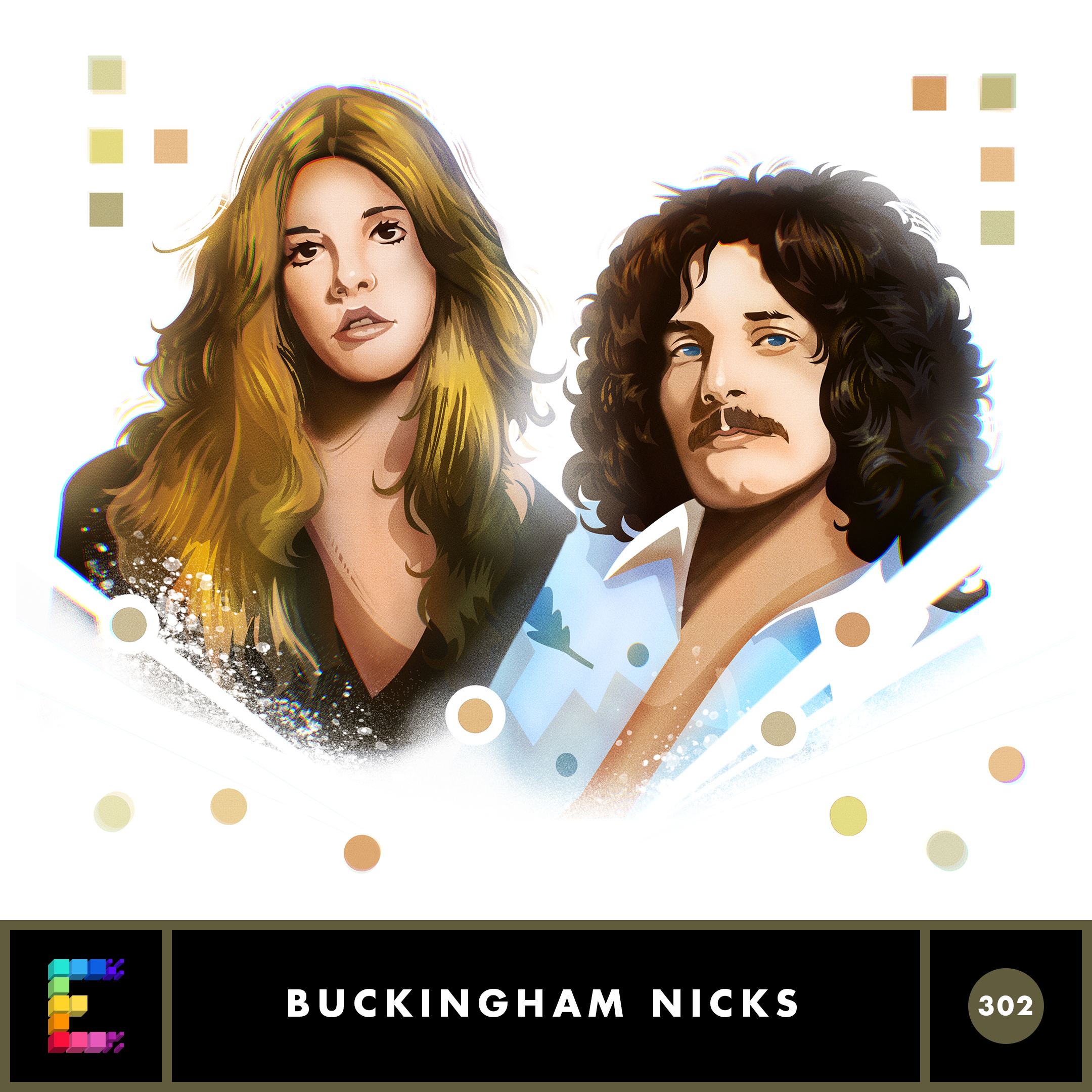Key Change: David Chang on "I See a Darkness"
My guest today is Chef David Chang. He founded Momofuku Noodle Bar in 2004. That was just the start of his incredible career – he’s opened several restaurants, winning awards and Michelin stars along the way, and becoming a fixture in the upper echelon of food. He’s the host of the Netflix shows Ugly Delicious and Dinner Time Live, as well as his own podcast, The Dave Chang Show. For this episode, I talked to Dave about the song “I See a Darkness.” It's the title track on the album by Bonnie “Prince” Billy, aka Will Oldham, which came out in 1999. Later, Johnny Cash would cover “I See a Darkness” in 2000, as a duet with Will Oldham, as part of Johnny Cash’s acclaimed American series.
You can get Bonnie "Prince" Billy’s "I See a Darkness" on vinyl or digital here.
For more info, visit songexploder.net/david-chang.
Press play and read along
Transcript
Speaker 1 You're listening to Song Exploder, where musicians take apart their songs and piece by piece tell the story of how they were made. I'm Rishikesh, Hirway.
Speaker 1 There's nothing like knowing someone's in your corner, especially in the moments that really matter. That's why ATT has connectivity that you can depend on, or they'll proactively make it right.
Speaker 1
That's the ATT Guarantee. Terms and conditions apply.
Visit att.com/slash guarantee to learn more. ATT, connecting changes everything.
Speaker 1 Thanks to Indeed for supporting Song Exploder. If you need to hire somebody for your business and you have to do it quickly, Indeed is all you need.
Speaker 1 With Indeed's sponsored jobs feature, your post jumps to the top of the page for relevant candidates so you can reach the people you want faster. There's no need to wait any longer.
Speaker 1 Speed up your hiring right now with Indeed. And Song Exploder listeners will get a $75 sponsored job credit to get your jobs more visibility at indeed.com/slash SongExploder.
Speaker 1 Again, Again, that's indeed.com slash song exploder. Terms and conditions apply.
Speaker 2 Hiring?
Speaker 1 Indeed is all you need.
Speaker 1
This is Key Change, where I talk to fascinating people about the music that transformed their lives. My guest today is Chef David Chang.
He founded Momofuku Noodle Bar in 2004.
Speaker 1 That was just the start of his incredible career. He's opened several restaurants, winning awards and Michelin stars along the way and becoming a fixture in the upper echelon of food.
Speaker 1 He's the the host of the Netflix shows Ugly Delicious and Dinner Time Live, as well as his own podcast, The Dave Chang Show. For this episode, I talked to Dave about the song I See a Darkness.
Speaker 1 It's the title track on the album by Bonnie Prince Billy, aka Will Oldham, which came out in 1999.
Speaker 1 Later, Johnny Cash would cover I See a Darkness in 2000 as a duet with Will Oldham as part of Johnny Cash's acclaimed American series.
Speaker 1 I want to give a content warning before getting into the episode here because this conversation is a heavy one.
Speaker 1 Dave talks about his depression because that figures entirely into his relationship with this song.
Speaker 1 And later on, he talks a bit about his friendship with Anthony Bourdain, who, if you're not familiar with him, was an iconic towering figure in the food world. And he died by suicide in 2018.
Speaker 1 I feel like I need to include something here that Dave said in our interview.
Speaker 2 In today's day and age, in 2025, where people are talking about mental health and mental illness, it always pisses me off when somebody hurts themselves and you read the newspaper and they always put in the call the suicide hotbite at the end.
Speaker 2
It fucking drives me insane. I'm like, you think that's going to change it? Like, this is the problem.
We're just having a hard time like having a conversation about it.
Speaker 1 Here's the episode. David, thanks so much for being here and doing the show.
Speaker 2
And she thanks for having me. I See a Darkness off I See a Darkness by Will Oldham, Bonnie Prince Billy.
It's number one, by far and away, the most important song of my life. Yeah.
Speaker 1 When was the first time you heard it?
Speaker 2
99. You know, it was right after we got back from winter break, senior year.
I just had never really listened to anything like Will Olden before. I just didn't even know how to characterize it.
Speaker 2 But around that time, I really started to appreciate music that was hard to play for other people. That's the best way to describe it, right?
Speaker 2
If you played it for acquaintances that you don't really know, you wouldn't do that. That's how I feel.
Yeah.
Speaker 1 It's a little bit like small talk.
Speaker 1 Like, where are you at conversationally with someone? With a stranger, you're going to be at the surface level of small talk.
Speaker 1 With someone you know a little bit better, you might get into some stuff, but you're not going to get into the real stuff.
Speaker 2 Exactly. And when you find that moment where you can connect with somebody, you're like, oh my God, it's pretty powerful.
Speaker 2 And the music that I would listen to became instrumental in how I would think about food later on.
Speaker 2 It gave me the confidence to find a way to express myself in food that may not be the exact mainstream highway that people might be receptive to.
Speaker 2 Because food was such a different place in the early aughts where we didn't have this wealth of knowledge, not in a cultural understanding.
Speaker 2 And I had to look at other places, primarily music, to gain a lot of reference.
Speaker 1 Going back to when the first time you heard it, it's your senior year. You went to Trinity in Connecticut, right? Yep.
Speaker 2 And I i remember listening to the album and getting the cd i bought it at tower records and uh the album cover just scared the out of me yeah will you describe the album cover it's a skull on a black
Speaker 2 you know this faded black look it seems foreboding it seems dark and sad it tells you everything beware yeah it's not just a normal skull and it's not inviting at all Most of the songs are not happy.
Speaker 2
Yeah. But it also, I love sad music too, but this was a different kind of sadness.
And I would listen to it, but I never listened to the lyrics. It never resonated.
So I just sort of put it away.
Speaker 2 I moved to Japan after that summer. I wasn't there to cook, but I was teaching English and I live in the middle of nowhere.
Speaker 2
And when you're stuck in the middle of nowhere, you just sort of listen to things differently. You're more open to things.
I'm reading things that I never read before. And
Speaker 2 it was something, again, I would listen to, but it still didn't resonate with me. Like, man, I just can't connect, but I feel like something's there, but I don't know.
Speaker 2 I come back from Japan and I start working in New York. And I never really had manic highs, but I would have mostly manic lows in terms of later diagnoses bipolar.
Speaker 2 And I would have moments now in retrospect where we were just like darkness, right?
Speaker 2 And at that time, 2000, there was sort of nothing online as a resource that you might have today.
Speaker 2 And I would go to library and be like, okay, I think the only books that were available that I read were sort of Noonday Demon and Will Steirn had a book called Darkness Visible.
Speaker 2 And that proved to be a very important book for me because he would describe
Speaker 2 being overcome with darkness where he would not have control over his emotions.
Speaker 2 And it would bring him to a place that was not good.
Speaker 2 It was the first time where I could read something and I'm like, well, it's not exact, but he's writing things that I understand where I'm at emotionally.
Speaker 2 But I just was grasping for sort of help and I needed help, but I was too afraid to ask for help.
Speaker 2 And when you are depressed and you don't want to face the world and you lock yourself in your room, I would just listen to music.
Speaker 2 So when I wasn't working, which was a lot at that time, cooking, you know, my sort of private moments, I'd just be listening to music, trying to find anything.
Speaker 2 And I just knew intuitively, like, this is the album that I should probably listen to. It's not a surprise if you're in a bad mental place.
Speaker 2 Like, if you're breaking up with your girlfriend or boyfriend, it's consoling to listen to a sad song about breakup.
Speaker 2 But it sort of was like scary because when I listened to it, I felt like I understood a song.
Speaker 2 in a way that I'd never understood anything before.
Speaker 2 My initial interpretation was a song about depression, mental depression, not having control over your emotions.
Speaker 1 But did you ever
Speaker 1 notice
Speaker 1 the kind of thoughts I got?
Speaker 2 Being overcome by darkness and losing optimism in the world.
Speaker 2
It's just this perfect marriage of all the instruments and hitting the notes the way it is. It's imperfectly perfect.
It's perfectly imperfect.
Speaker 2 And honestly, the lyrics are so spartan.
Speaker 2
To me, the most powerful part of that song is pull the smiles inside. I think about that lyric.
So powerful. Sometimes the most unhappy I've ever been, or if I see somebody that
Speaker 2 is extremely happy on the outside could just be a mask. More often than not, it's just not real.
Speaker 2 It almost seems frowned upon to share a feeling of sadness or I'm not actually having a smile.
Speaker 2
There's a lot of conflict in there about one's perspective to society, culture, to loved ones, to friends. Because nobody, you don't want to impose on people a negative outlook.
At least I don't.
Speaker 2 But that's to me what the song is about. That line shows me that this individual is empathetic enough that he cares about how other people might be perceiving someone's actions, including his own.
Speaker 2 And I think that's a lot to unpack from a small line that has like four words in it.
Speaker 2 When I first really started thinking about the song and I'm working in New York and I'm about to open up the restaurant, original Momofugu, 2003, 2004, I never thought about it actually
Speaker 2
as the narrator, the singer of the song, singing it to anybody. I would assume most people think that he might be singing it to his friend.
Right.
Speaker 2 I've always interpreted it that this person is singing it with the hope of telling a friend.
Speaker 1 Like he's building up his confidence. Yeah.
Speaker 2 And if you've been in that situation where,
Speaker 2 you know, it's on the opposite end of the spectrum with telling someone you love somebody. Right.
Speaker 2 Like, I gotta, when at least I did, I was like, man, I'm gonna, I'm gonna tell what is now my wife, like, I love her.
Speaker 2
It's like, you need that confidence. You're talking to yourself, like, oh, it's it's going to go out like this.
It's going to happen like that.
Speaker 2 But for those that have been tinged with this unsavory place to be mentally, the hardest part is sharing where you're at with anybody.
Speaker 2 So I view this as a practice conversation to tell a friend.
Speaker 2
And it's certainly no problem if it was designed where he's actually singing to his friend. But I feel that if you are in a place of depression, you live in your head.
It's all imaginary.
Speaker 2
You're not even interacting with the world. The prospect of you even seeing a friend in physical life, it's not even happening.
So I always viewed the song as
Speaker 2 the narrator thinking about the song, hoping to express oneself to a friend. And that's ultimately why I view the song as extraordinarily hopeful.
Speaker 2 But you can listen to that a thousand times and not see the hope. And I think why it resonated so strongly with me was
Speaker 2 the mere fact that you are now thinking about sharing your place of where you're at,
Speaker 2 that's the hardest fucking thing to do.
Speaker 2 It's like you're breaking through this inertia that, hey, all I know is whatever is happening, maybe I wasn't aware of it when I made mistakes in the past and it just happened.
Speaker 2 But now I've made enough mistakes where something's got to change. But that just that spark.
Speaker 2
I view it as uplifting because it's a spark of hope. And that's all you can ask for when you're in that kind of place.
And that's why it was always this buoy of safety for me.
Speaker 2 It's a reminder, like, I'm getting through something.
Speaker 1 My conversation with Chef David Chang continues after this.
Speaker 1 Staying connected matters. Whether you're checking in with your parents or roasting your friends in the group chat, just letting the people you care about know that you're there is important.
Speaker 1 And with AT ⁇ T, you're backed by a network that comes through for you. In the rare event of a network outage, they'll proactively make it right with a credit for a full day of service.
Speaker 1
That's the AT ⁇ T guarantee. AT ⁇ T, connecting, changes everything.
Terms and conditions apply.
Speaker 1 Credit for fiber downtime lasting 20 minutes or more, or for wireless downtime lasting 60 minutes or more caused by a single incident impacting 10 or more towers.
Speaker 1
It must be connected to the impacted tower at onset of outage. Restrictions and exclusions apply.
See att.com slash guarantee for full details.
Speaker 1 Thanks to Function for supporting this episode. I chose to use Function because it's the only health platform that gives me data about what's actually happening inside my body.
Speaker 1 Data that most people never get. Plus, I get the insights to start doing something about it.
Speaker 1 I've definitely noticed the ways that things have started changing for me as I've gotten older, but for a while I kind of just shrugged it off and figured it was inevitable.
Speaker 1 But then I got my function lab results back and I saw stuff like my vitamin D and my magnesium were pretty low.
Speaker 1 And those things affect bone mineral density and muscle mass and stuff that affects your strength and mobility. And they're also pretty easy to fix.
Speaker 1 And so, getting this info through function is going to help my health overall, even as I'm getting older. If you want to learn more, then join Function using my Song Exploder link.
Speaker 1 Function is a near 360-degree view to see what's happening in your body. And the first thousand Song Exploder listeners to sign up will get a $100 credit toward their membership.
Speaker 1 So, visit functionhealth.com/slash song exploder or use the gift code songexploder100 when you sign up so you can own your health.
Speaker 2
When did the Johnny Cash version come out? In 2000. And then that became like very popular.
Yeah. And I listened to that version.
Speaker 2
I like it because I like Johnny Cash, but I don't, I didn't like it because it was a different meaning. Same lyrics, but it feels like a different song to me.
It's not singing to me anymore.
Speaker 1 Yeah.
Speaker 2 And I also learned that it wasn't necessarily a song about depression from Oldsham's perspective.
Speaker 2 And I think that he said something like, it's a song about a good person plagued with bad thoughts or intentions.
Speaker 2 And that didn't bother me at all because I felt that the Johnny Cash version clearly was about something else that I never really followed up on, but I could see that.
Speaker 2 And I was like, okay.
Speaker 2 But whatever interpretation or any version of that song,
Speaker 2 whether it was about depression or whether it was about darkness or wanting to do bad things or wanting to do drugs or whatever that society deems as bad behavior from an individual.
Speaker 2 All of those interpretations of what that song might be live in the same house, which is not a place of brilliance and happiness and radiance.
Speaker 2
But I think it's okay to have a place that is not that. And that's why it's important to me.
It is a place that I can go to.
Speaker 2 It's a song that I can go to when I'm either in a place of darkness or something bad happens. And that has unfortunately happened to me a bunch in my life
Speaker 2 so it's like this song is burned into my psyche but
Speaker 2 i can tell you for certain that the meaning of that song changed over time initially it was oh this song is about me this song is he's writing about me you know but The song changed as I got help and I got treatment and as I got to understand things a little bit better.
Speaker 1 You said that you have looked at music as an inspiration for food. Do you think that there's anything in your food that you could connect back to coming from this song?
Speaker 2 I don't know if it's specifically a dish or anything, but I do think it's a song about resilience to me ultimately. I would view it as a song that reminds me that there are peaks and valleys.
Speaker 2
And when it's bad, it's bad. And when it's good, it's good, but it's usually not nearly as bad as you think.
It's usually not as good as you think.
Speaker 2 And no matter where you're at, it's okay to ask for help. And I think that's the thing is no matter where I've been at in my career, I've never viewed it as a solo venture.
Speaker 2 And I've always viewed it as it's much better if I have a friend around.
Speaker 1 I know you said the songs changed its meaning for you over the years.
Speaker 1 Have you ever listened to it and felt not a connection to the singer, but actually heard yourself as the friend that he's singing to?
Speaker 2
Oh, yeah. If there's a multiverse, I think I've gone to every possible scenario of listening to this song.
I always visioned this happening in a bar.
Speaker 2 And I thought about it as if I was on the receiving end of this conversation, how that might be weird. It's weird, not because I'm having the conversation.
Speaker 2 I think it's weird because most people never have this kind of conversation. So how are you ready to hear that information? On the other hand, I thought about it as a friend.
Speaker 2 And if you are receiving end of it all, it's like, it's a beautiful thing that your friend is confiding in you something so personal.
Speaker 2 That friendship, the love bond between the two of you is so great that
Speaker 2
this friend can share with me something that he cannot share or she cannot share with anybody else. So from that perspective, I was like, oh, that's pretty fucking cool.
So yeah.
Speaker 1 Yeah, the last line of the song being, do you know how much I love you? is a hope that somehow you can save me from this darkness.
Speaker 2 Yeah.
Speaker 2 This hard life is too fucking hard to do it on your own.
Speaker 2 I've given this song to a lot of my friends because I think I've been open about my struggles. This is the song I will give to somebody if I know and they've asked for help.
Speaker 2 And it's okay if it doesn't resonate with them. I just want them to know that they can find their own thing that is their buoy.
Speaker 2 But I think about this song in a different way, particularly when Tony died, Bourding.
Speaker 2 I listened to that song a lot after Tony died. I listened to it so much that that I had to stop listening to it because I listened to it almost as punishment because I never gave it to him.
Speaker 2
So it's a reminder to me that you never know where somebody's at ever. Tony never brought the smile inside, you know? And I think about that a lot.
It reminded me that
Speaker 2 when you are in a bar with a friend catching up, you should say the things that you want to say.
Speaker 2 Had I not made the assumption that Tony was always Tony,
Speaker 2 maybe
Speaker 2 something could have been different. I don't know.
Speaker 2 So that's hard.
Speaker 2 But the song is a conversation. And it's a conversation that I wish that I had with more people.
Speaker 2 Again, encouraging yourself to build up confidence to have that conversation.
Speaker 1 When you were first describing the song, you said that it was something that you didn't feel comfortable playing in front of other people.
Speaker 1 So do you remember when it changed that it became something that you wanted to give your friends?
Speaker 2 I remember getting help, seeing my first psychiatrist, being like,
Speaker 2
I don't feel comfortable. Every step of the way in this process, I was nervous to get help.
Then you get help.
Speaker 2
And then you don't want to take the medicine or the advice or the therapy or behavior therapy or whatever it might be. And then you sort of just surrender.
You give up control.
Speaker 2
And you're like, I'm never going to tell anybody this. It is my secret.
I don't want anyone to know.
Speaker 2 And then I think somewhere along the way, I started telling some people. You're slowly building up a tolerance of letting people know that you might be different.
Speaker 2 It's okay to let people know that you're vulnerable. But going back to Tony, I never told anybody this at a public, large level until he died.
Speaker 2 And it
Speaker 2 totally fucked me up. And I was like, I'm never going to fucking not do that again.
Speaker 2 I mean, it's hard talking about her now.
Speaker 2
I feel like we were all selfish and we all wanted Tony to be a certain way. I needed Tony to be fearless.
I needed Tony to be strong,
Speaker 2 to be the, you know, the oracle of Delphi. You know, whenever I needed help, he was there.
Speaker 2 And I have a lot of remorse for always being the person that took from Tony and ever giving.
Speaker 2 And I think that if I was being more selfless with the time that I had with Tony, it's possible that I could have had a conversation that he was like, you know, I've been thinking about that a lot.
Speaker 2
I can't believe that you're talking about this right now. Or like, man, I never thought about it that way.
I'm acting this way. Or like, you're right.
I can't believe I'm thinking about this.
Speaker 2 Like, you're totally right.
Speaker 2 I don't want to have regrets of conversations that I should have had with the people I care about or love.
Speaker 2
And I never had that conversation with Tony. So yeah, that's why the song was so hard.
It was a reminder. Maybe nothing could have changed.
And that's probably what have happened too. I don't know.
Speaker 2 But
Speaker 2 I told myself, I was like, well, what am I hiding things for?
Speaker 2 This is fucking terrible. Why would I be afraid to talk about this? What's the point? Ego? If anything.
Speaker 2 I'd rather talk about this and share my personal struggles than give somebody a 1-800 number.
Speaker 2 So yeah, I had not really listened to that song since he passed.
Speaker 2 It was like a yearbook of pain.
Speaker 2 I don't look at that as a negative at all. This is what life is, the good and the fucking bad.
Speaker 2 So
Speaker 2 yeah.
Speaker 2 Hard to talk about this stuff.
Speaker 2 But to me, the cruel cosmic joke of depression is it robs you of the belief that anybody could stand in your shoes or help you.
Speaker 2 It robs you of the confidence to think that anybody would be invested in you.
Speaker 2 It's just insidious that way.
Speaker 2 And that's to me sort of why a song is so hopeful is
Speaker 2 I think it's a reminder that not only is it better to do the good things and the joyous moments of your life with others, it's It's better definitely to not be by yourself.
Speaker 1 Thanks so much, Dave.
Speaker 2 Oh, man.
Speaker 2 I can't believe we just talked about all this. This is crazy.
Speaker 1 I really appreciate it.
Speaker 2 Thanks for having me, Rishi.
Speaker 1 You can hear more with Chef David Chang on his own podcast, The Dave Chang Show. I've been a guest on there a couple times, and I always really love talking to him.
Speaker 1 And also check out Dave's memoir, Eat a Peach, which came out in 2020. He's also on social media at David Chang.
Speaker 1
Also, go listen to I See a Darkness by Bonnie Prince Billy. It's an amazing song.
Actually, the whole album is great. And I'll put a link in the show notes for where you can order it.
Speaker 1 Visit songexploder.net slash keychange for more keychange episodes and for a playlist with all the songs that have been discussed on the series.
Speaker 1 This episode was produced by me and Mary Dolan with production assistance from Tiger Biscuit.
Speaker 1 Song Exploder is a proud member of Radiotopia from PRX, a network of independent, listener-supported, artist-owned podcasts. You can learn more about our shows at radiotopia.fm.
Speaker 1 If you'd like to hear more from me, I have a newsletter that I send out. It's on Substack, and it's called Accept Cookies.
Speaker 1 I wrote about what I'm watching and listening to and thinking about these days. You can find a link to it on the Song Exploder website.
Speaker 1 You can also get a Song Exploder shirt at songexploder.net/slash shirt.
Speaker 1 I'm Rishi Kesh Hirway. Thanks for listening.
Speaker 2 Radiotopia
Speaker 2 from PRX.
